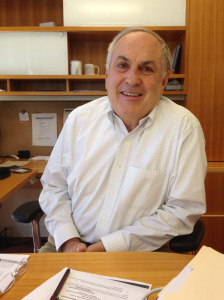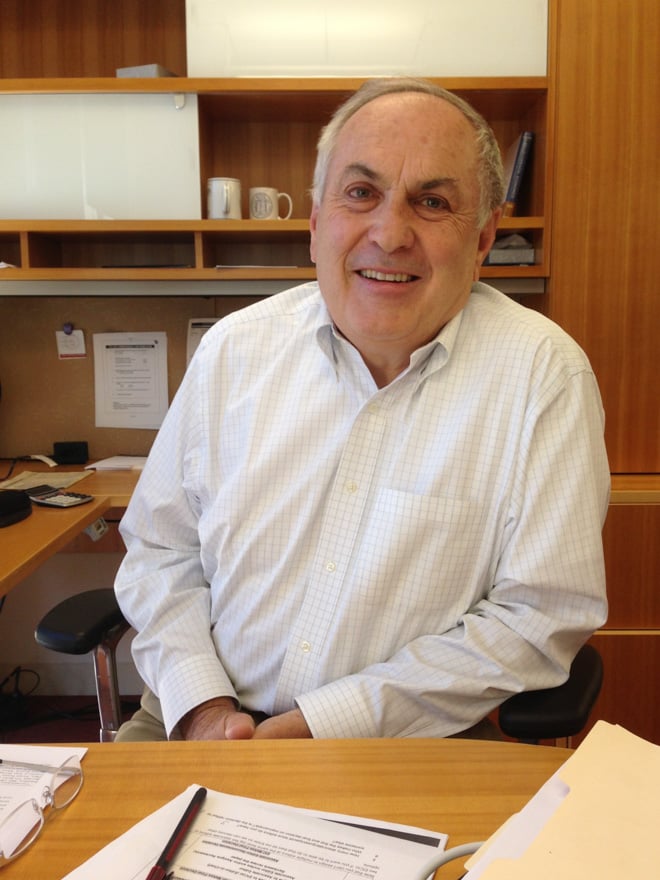Last week, the Department of Defense released a report titled “2014 Climate Change: Adaptation Roadmap,” in which Secretary of Defense Leon Panetta identified resource conflicts as a key area of nations’ foreign policy in coming years. The Stanford Daily sat down with Charles Kolstad, professor of economics and international expert in environmental economics, to talk about the possibility of increased conflict as climate change intensifies.

The Stanford Daily (TSD): You were quoted in a Bloomberg article on the Pentagon report saying that climate change posed problems for future foreign policy. What was said during the phone interview that didn’t make it into the actual piece?
Charles Kolstad (CK): What I told them was that there are a lot of tinder boxes around the world, like Pakistan, India, Bangladesh, the Middle East — there are other places, too — where if there’s an environmental shock, it could cause all sorts of instability…Countries don’t like it if people come across their border without permission, and these [migrations] can cause conflicts. The Pentagon has been, for years, worried about that. Not that people are going to come across our border, but we tend to, for some unknown reason, get embroiled in many of these conflicts around the world.
TSD: Your quote from the article says that climate change damage such as water scarcity is “much more likely to exacerbate regional conflicts, which can be real risks to the United States.” Would you like to expand on that?
CK: Let’s just paint a scenario — and I’m not sure this is going to happen; this is just one possibility. Pakistan is a very dry country; it’s got desert areas. India is much bigger and not quite so susceptible. We have a drought in India — a prolonged drought [that] really causes economic disruption. The politicians in charge are getting very unpopular so they start a war. Politicians like to start wars when their popularity is waning; Margaret Thatcher did that — [that was] one reason for the Falkland War. We could say that Vladamir Putin is doing that now to increase his popularity, and American presidents have done that, too. So you could get a war in Pakistan and India, and then nuclear weapons could end up being used. [The war] could expand beyond the borders, like WWI did.
The Pentagon understandably is very nervous about that, and [those countries are] just one possible place [where] that could happen…People tend to think of [climate change] as just a change — instead of living in the average temperature of 70 degrees, we’re going to live at an average temperature of 73 degrees. If it was only that, it would be a much more modest risk, but it’s the change that causes disruptions.
TSD: Was the Pentagon report sensationalized at all, or do you feel it represents real concerns?
CK: I didn’t think it was sensationalized. I think it was a bit too much of talking about how their bases will be warmer and [how] that will cause some disruption to the air conditioning and load. I thought there was maybe an over-emphasis on those sorts of disruptions, and there could have been more emphasis on the risk threat. But both were in there. I thought, in fact, it was written in a very bureaucratic way — not at all exciting to read.
TSD: Your research interests include information, uncertainty and regulation, and much of your research is on climate change and energy markets. What are your current research projects?
CK: I have been involved in a significant way with the U.N. in the Intergovernmental Panel on Climate Change, the IPCC. We just finished a five-year [project] a couple of months ago. That’s not necessarily a research project, but it’s policy engagement at an international level.
In terms of research, I’m working on the theories of international cooperation on environmental matters. One of the things that people talk a lot about with climate change is using treaties to solve the problem or partially solve the problem. But how we get countries to come [together] cooperatively and voluntarily to [create treaties] has been a really difficult problem. It boils down to the theory of voluntary cooperation, which a lot of people in economics look at among individuals and countries. So [I’m] looking at theories of cooperation and perhaps how we can structure things to get more cooperation on environmental matters.
Another area I’m working on is [exploring the question] “how does one encourage research and development of high-climate friendly technologies?” And what kinds of policies will get the inventors moving to invent better ways of dealing with emitting carbon and keeping our standard of living around the world?
TSD: What were your experiences with the Peace Corps in Ghana like?
CK: No Ebola then — we did have cholera though! I [went to Ghana] right after my bachelor’s degree. It was essentially teaching high school in a rural school so the job was fairly well defined…I was doing pure mathematics at that time. I was a math major in college, and I taught math and physics in high school. It was in those two years [with the Peace Corps] that I saw the problems of Africa in comparison to our problems. Their problems seemed much, much more significant. That’s what caused me to ultimately switch to economics [from] pure mathematics, even though, for a few years after the Peace Corps, I did go into grad school for mathematics.
So it changed the direction of my career. If you look around Stanford and see which faculty members have been in the Peace Corps, I bet you’d be surprised how many have been. It really changes the way you look at the world.
TDS: How did you initially decide to go on that trip and be involved with the Peace Corps?
CK: I could tell you that I was extremely idealistic and thought it was the right thing to do, but at that time the draft was still active. So you couldn’t just drift around after you graduated from college, or you’d get nabbed. I had to do something. I could go to grad school immediately; I could teach high school in the U.S.; or, what I thought was more interesting, [I could] teach high school in Africa. Out of those three choices, I decided that [going to Ghana] was a great opportunity and adventure…The Peace Corps is fairly paternalistic, and they take care of you. It wasn’t a very risky job, and it was a very rewarding job. So I did it, and I’m very happy I did. I would recommend it to any of the Stanford students — to consider the Peace Corps.
TSD: You talked about the Intergovernmental Panel on Climate Change (IPCC), but could you talk a bit about your work with the other organizations you’re involved with, like the California Air Resources Board and the Journal Review of Environmental Economics and Policy?
CK: [The Journal Review of Environmental Economics and Policy] is my journal I edit. Basically I’m in charge of it. It’s a journal of environmental policy that bridges the academic discipline of economics [with] the policy folks in Washington and around the world. It’s actually an international journal. It’s a very rewarding activity, but it’s not as time-consuming as the IPCC activity.
The Air Resources Board — you probably know that California is a leader in trying to do something about climate change and greenhouse gases. About 10 years ago, we passed what’s known as AB32, Assembly Bill 32. It’s the Global Warming Solutions Act in California, which has a goal to reduce the emissions of carbon dioxide in the state — in 2020 by a certain amount and then in 2050 by a much bigger amount…California is a leader around the world in [reducing carbon dioxide emissions]. The whole world is watching us. The people in Sacramento are very nervous that the state doesn’t screw up — a lot is at stake. So one of the things they’ve done is put together an economics advisory group, which has a couple Stanford faculty on it — Larry Goulder and myself. And then there are other people who are experts in this area. It’s really an economic question of how you get the polluters in the state to reduce their emissions in a way that’s least disruptive to the state. We’ve been doing this for several years — trying to help the state make a smooth, effective implementation of AB32.
TSD: I read that you were the co-recipient of the Nobel Peace Prize.
CK: The IPCC, of which I was a member, was [actually] the co-recipient. The IPCC shared it with Al Gore in 2007, and basically the folks on the IPCC had some halo effect from that. It was quite an honor. The head honcho of the IPCC went to Oslo on behalf of the IPCC; then we all got these plaques with a print of the award on the top. [The prize money] was donated.
I was just in Chile at a conference two weeks ago, and I met somebody there that was very impressed that I got the Nobel Prize. I had to explain the difference to him between [my] winning the prize and the IPCC’s getting it. It’s nice, but I don’t think it’s as deserved as other things. It was given to the group, not to me. I think one of the honors that’s most significant is being recognized by your fellow scholars, academics. I think being identified as a fellow of the Association of Environmental and Resource Economists is one of the highest honors, as well as working with great people at the great California universities — that’s a real treat.
[This transcription has been condensed and edited]
Contact Rebecca Aydin at raydin ‘at’ stanford.edu.
